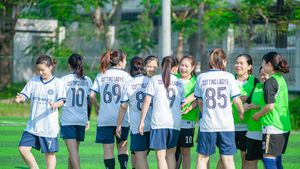New Wave Of Smartphone Restrictions Hits Schools Nationwide
Across the United States, schools are increasingly cracking down on smartphone use during instructional hours to tackle growing concerns about distractions and mental health issues among students. Amid this surge of regulations, states like Virginia and California are leading the charge by setting new guidelines or encouraging school districts to adopt stricter policies.
California Governor Gavin Newsom has recently urged school districts to restrict student cellphone use on campus to help students focus better. His call to action aligns with similar discussions happening across other states, including South Carolina, where the State Board of Education is exploring guidelines for banning phone use during class time.
Efforts to limit cellphone use aren't new. Many schools nationwide have implemented policies to combat distractions, but enforcement can be inconsistent, making it tough for educators to maintain focused learning environments.
Newsom's letters to school districts highlight the potential risks smartphones pose to students. He emphasizes the importance of learning environments devoid of distractions, citing U.S. Surgeon General Vivek Murthy's concerns about social media impacts on youth to argue for immediate restrictions.
"Every classroom should be a place of focus, learning, and growth," Newsom stated, pushing for collaboration among educators, administrators, and parents to create distraction-free educational spaces. His remarks resonate with many who believe technology's presence can hinder learning.
California's push for regulations follows similar actions across the country. States like Louisiana, Florida, and Utah have already implemented measures to tackle cellphone misuse amid the growing recognition of mental health challenges faced by young people, including anxiety tied to social media.
The debate over cellphone bans often finds itself pitted against arguments for integrating technology as learning tools. Stanford University professor Antero Garcia criticized the lack of innovation, stating, "what I'm struck by is society's inability to move forward and find... solutions other than perpetually going back to this 'Should we ban devices?' conversation."
Various districts, including the Santa Barbara Unified and Los Angeles Unified school districts, have already enacted bans. On the flip side, Troy Flint of the California School Boards Association argues decisions about cellphone policies should be left to local districts rather than dictated from above.
"Cellphone usage on campus is certainly serious and deserves close examination, but those decisions need to be made at the local level," Flint explained. The nuanced nature of cellphone use underscores the need for localized solutions, taking each community's unique needs and context to heart.
Meanwhile, Virginia Governor Glenn Youngkin has taken decisive steps by issuing an executive order limiting cellphone use for approximately 1.2 million public students. This order also emphasizes the establishment of procedures such as pouches or dedicated lockers to help enforce the new rules.
The urgency of these measures reflects growing concerns about smartphones' negative effects on education and well-being. Youngkin's order indicates exceptions could facilitate necessary communications between parents and children, balancing safety with educational needs.
The push for regulations coincides with actions from other states, as shown by South Carolina's temporary one-year requirement passed by lawmakers. Schools are now tasked with creating specific guidelines to mitigate cellphone use before potential losses of state funding begin.
Education officials rushed to develop these proposals, acknowledging the necessity of involving teachers, parents, and administrators for constructive feedback. South Carolina Education Board Chairman David O’Shields stressed the importance of careful consideration over haste, stating, "Let's get these eggs right. I want a good omelet."
Concerns also extend beyond classroom usage. Teachers debate whether cellphone regulations should apply solely during classes or expand to include bus rides and field trips, raising questions about practicality and enforcement.
Matthew Ferguson, Deputy Superintendent of South Carolina’s Education Department, reiterated the need to provide distraction-free learning experiences. Surveys among teachers showed overwhelming support for limiting cellphone access, with many believing it hampers learning processes significantly.
Reports from the National Parents Union echo similar sentiments among parents. About 70% back restrictions during class hours, though many still want access during breaks, highlighting the complex conversation surrounding technology's place within educational settings.
Despite the focus on smartphone restrictions, educators warn about broader technological distractions students can face. Laptops and tablets for schoolwork can also be sources of distraction, and cyberbullying remains rampant on these platforms.
Data from Bark, which monitors digital behavior, reveals staggering numbers. Over 8.5 million instances of cyberbullying have been recorded on platforms like Google Docs since 2019, prompting educators to explore tech management tools from companies like Microsoft and Google.
Funding for cellphone management and storage solutions has started rolling out from various states. Pennsylvania has allocated millions for lockable pouches, demonstrating a commitment to fostering safe educational environments.
The current academic year is witnessing many schools implementing new cellphone policies. For example, Sabine Parish school officials have rolled out mandates requiring students to store their devices away during classes, with Franklin Township banning all personal technology during instructional periods.
Innovative strategies, like designated holders and "phone jail" cabinets for confiscated devices, showcase efforts to manage technology use effectively. These proactive approaches reveal schools' commitment to creating focused environments.
While support from parents abounds, student concerns linger too. Many express the need for phones for tasks such as note-taking, photographing assignments, and maintaining communication with family and friends.
Critics of the bans argue these restrictions could disproportionately affect students juggling after-school jobs or caregiving responsibilities. This multifaceted dilemma has educators, parents, and administrators consistently engaged as they navigate the complexity of smartphone regulations.
The nationwide movement showcases how tech's role is increasingly critical to discussions about student learning and well-being. Implementing cellphone restrictions transcends state regulations and sparks broader conversations about adapting educational practices for modern challenges.
With the academic year underway, the challenge remains— how will schools balance these regulations with educational needs? The resolution to these pressing questions may outline the path toward healthier, more focused school environments.



